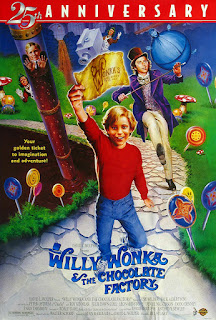Lan fengzheng; historical drama, China / Hong Kong, 1993, D: Tian Zhuangzhuang, S: Liping Lü, Xiaoman Chen, Cunxin Pu, Xiejian Li, Baochang Guo, Ping Zong, Quanzhong Chu
Beijing, 1 9 5 3. Librarian Lin Shaolong marries Shujuan. Their son Tietou is soon born, and dad gives him a blue kite as a present, but it gets stuck on a tree. Mao Zedong is the ruler of China, and introduces Communism to the country. During the Hundred Flowers Campaign, citizens are invited to freely express their opinions on the Party, but a man wrote a letter comparing Communists to man-eating tigers, and thus the Party initiates a punishment as an example to disobedient ones. Dad is selected to be sent via train to a labor camp, where he dies from a falling tree... Years later, dad’s friend Li marries Shujuan, but dies from malnutrition during the Great Leap Forward... In 1 9 6 6, Shujuan and the 12-year old Tietou move to the home of her third husband, but he too is accused of “anti-revolutionary” activity and taken away during the Cultural Revolution. When the Communists want to take Shujuan, too, Tietou hits one Communist with a brick on the head. Tietou is beaten up and left lying on the floor.
Included in Roger Ebert’s Great Movies list, “The Blue Kite” is an uncompromising and remarkably subversive history lesson of Communist takeover of China. It is a pure, archetypal story seen numerous times: a political, ethnic or religious ideology takes control of a country, and presents itself as the best thing ever, the only dogma allowed in the lives of its citizens, until it becomes a form of fundamentalism, and anyone opposed to its rule (or even just seeking an improvement) will be persecuted. In one sequence in the kitchen, uncle Li questions the efficiency of the Great Leap Forward policy, pointing out how “communal kitchens waste untold amounts of food” and that backyard furnaces only produce “scrap metal”, receiving a knee-jerk reaction attack from a woman (“What are you saying? That is reactionary!”), but he just calmly explains: “Would I say it if I didn’t care deeply for this country?” Any criticism, even reasonable one, is a heresy. In one legendary sequence, dad goes to a toilet during a meeting, and when he returns finds out he has been "assigned" as an anti-revolutionary, to meet Mao's quota of traitors.
This is a political movie, but in a way it also isn’t, since most of the characters are just ordinary, apolitical civilians trying to live their lives, except that a political ideology is imposed on them and influences their lives one way or another, until it is impossible to separate their lives from the government. This is established already in the opening, when Shaolong and Shujuan plan to get married in early March 1 9 5 3, but just then the news is announced that Mao Zedong’s Communist ally Joseph Stalin died, as Tietou, the kid narrator explains: “Mum told me how because of Stalin's death she and dad had to postpone their wedding for ten days. And so my birthday came later as well”. The chronicle of Tietou watching as his mother loses three husbands to political purges and persecutions is at moments stale, but it is more often compelling, genuine, and an overall fascinating depiction of several rarely mentioned events, such as the Hundred Flowers Campaign and the Great Leap Forward. As unusual as it sounds, "The Blue Kite" could fit in a 'double bill' with "It's a Good Life", the allegorical "Twilight Zone" episode about petrified fear when faced with absolute totalitarian power of one person without any checks and balances. Ironically, it is indicative as much as it is telling that the same Communist Party of China in 1993 banned this movie depicting the policies of the Communist Party of China in the 50s and 60s, in effect condemning itself. The director Tian Zhuangzhuang keeps a level of ascetic authenticity throughout, but he also has lyrical symbolism in the form of the torn blue kite stuck on a tree, a motif of Tietou's childhood interrupted in a "suspended" life.
Grade:+++















